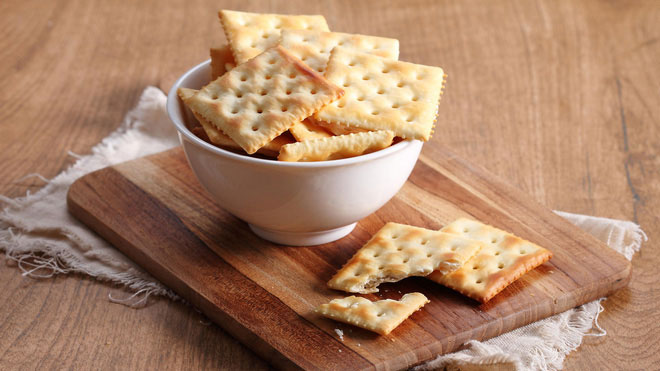Experiment with a cake, you'll know if you can eat a lot of carb
We know that carbohydrates into the body will be broken down into smaller sugar molecules like glucose and fructose. This process will take place as soon as food enters the mouth. But to the small intestine, new sugar is absorbed into the bloodstream and reaches the liver.
The liver converts the remaining sugars into glucose, which then follows the blood carried throughout the body, along with insulin, which provides energy for all of the body's basic functions and our physical activity.
If glucose is not used immediately for energy needs, the body can store them in amounts equal to about 2,000 kcal in the liver and skeletal muscle, in the form of a macromolecule called glycogen. When the amount of glycogen reaches a level that cannot be stored anymore, the carb is now converted into fat. And that's how eating carb makes you fat.
However, the fact is that not everyone who eats a lot of carbohydrates is also fat, and there are also people who abstain from carb but not effective. That seems to depend on the carb tolerance in each person's body. Good carb tolerance, you will eat more without getting fat and vice versa.
So how do you know if you are a good tolerant of carb?

In fact, not everyone who eats a lot of carbohydrates is also fat, and there are also people who abstain from carb but are not effective.
According to Sharon Moalem geneticist, there is a simple trick that you can do on your own to know how well your body is loaded with carb. It's called the 'biscuit experiment' , which he described in his 2016 book, the title: 'Restart DNA: Unlock your personal genetic code to eat for the sake of genes. , weight loss, and aging reversal '.
In a new BBC documentary titled 'The Truth About: Carb,' Dr. Xand van Tulleken, a dietary but gourmet carb expert, recruited a group of students to help him perform cake testing. biscuit.
"The truth is some of you can eat carb content, while others have to consider this," Dr. Tulleken said. He also confessed that he was the second type, when Tulleken weighed more than 120kg because he ate a lot of carb.
Testing biscuits, of course, requires you to eat cakes. Scientists prepared crunchy biscuits for students and told them: Chewing the cake for 30 seconds, not swallowing and paying attention to the taste of the cake. The moment you feel the cake is getting sweeter, raise your hand to signal it.
Scientists say students raise their hands fastest at 17 seconds. Meanwhile, some students continue to chew on the cake until the 35th second. Some people say they don't see any taste changes.

A cookie test can tell you if you can eat a lot of carb.
"Seventeen seconds is a relatively short time," Dr. Tulleken said. He compared it to the Moalem study, the shorter the time, the more "you have a high concentration of amylase enzyme in your mouth, which is cutting large starch molecules into sugar molecules or sugar-like molecules." makes you taste sweet ".
"That means you will be able to eat a lot of carb without any problems , " Dr. Tulleken said.
But for students who find sweetness slower, he said they probably belong to the same group 2. These people must consider eating less carbs than those in group 1.
Finally, for those who do not notice a taste change, the theory is that they have low levels of amylase in their mouth. Dr. Tulleken said these people may have to abstain from carb.
If you do this test yourself at home with biscuits, but you also don't realize that you change your taste after 30 seconds, your tolerance of carb intake may be poor. So, you should eat less carbs.
- Fruit cake is nearly 200 years old
- What do Asian countries eat during the Mid-Autumn Festival?
- How long have we always cut the wrong gato cake?
- Video: How to make chocolate cake from insects
- Low-carb diets can reduce the lifespan of middle-aged people
- Nutrition experts suggest how to choose the moon cake for each group of people
- '3D' cake machine
- The most horrifying psychological experiment in history
- When coming to the Lunar New Year, I wondered why the sugar cake did not flow out?
- Who should limit eating moon cake?
- New record of the world's largest pillow cake
- What is special about pretzel in Europe and America?
 Green tea cleans teeth better than mouthwash?
Green tea cleans teeth better than mouthwash? Death kiss: This is why you should not let anyone kiss your baby's lips
Death kiss: This is why you should not let anyone kiss your baby's lips What is salmonellosis?
What is salmonellosis? Caution should be exercised when using aloe vera through eating and drinking
Caution should be exercised when using aloe vera through eating and drinking